Malaysian Beverages: Basic Overview
Common Ingredients
Common Preparing Methods
Key Taste
Drinking Etiquette
Culinary Festivals
Influence and Fusion
Malaysian Beverages: Origin and Region
Cuisine
Culinary Region
Country’s Region
Classifications of Malaysian Beverages
-
Alcoholic Beverages
Malaysian alcoholic drinks, enjoyed mainly by non-Muslim communities, include wines and beers.
These drinks often use ingredients like palm sap, glutinous rice, cassava, and yeast, resulting in sweet, tangy flavors. They are found during celebrations like weddings and harvest festivals.
-
Non-alcoholic Beverages
Malaysian non-alcoholic drinks include a variety of teas, coffees, juices, and milk-based drinks. Key ingredients include black tea, coffee, milk, rose syrup, pandan leaves, local fruits, and spices.
These drinks are sweet, creamy, refreshing, and visually appealing, enjoyed at local eateries, street stalls, and festivals, perfect for the tropical climate.
Malaysian beverages are a diverse collection of drinks commonly enjoyed in Malaysia, a country situated in Southeast Asia. These beverages reflect the multicultural heritage of Malaysia, with influences from Malay, Chinese, Indian, and indigenous traditions.
The main types of beverages include teas, coffees, and a variety of fruit juices and milk-based drinks. The preparation method often involves unique techniques, such as the “pulling” method for teh tarik or the meticulous brewing of kopi, a local style of coffee.
Malaysian drinks often balance sweet and savory flavors, with ingredients like palm sugar, pandan leaves, and condensed milk adding distinct tastes. Cold beverages are frequently preferred due to the tropical climate.
In this read, you’ll find a list of the most common Malaysian beverages, insights into traditional drinking culture, and how these drinks gained global popularity. You’ll also discover the key characteristics that make Malaysian drinks unique and learn about dish and beverage pairings.
Let’s get started!
25 Best Malaysian Beverages
Here are 25 of the most popular Malaysian beverages, with unique search features to filter by popularity, ingredients, taste, preparation methods, and other features.
Whether you prefer traditional, national, exotic, fusion, or street drinks, use the filter to find your favorite quickly.
Teh Tarik
- Non-Alcoholic
- National
- Street Beverages
- Traditional
Teh tarik, or “pulled tea,” is Malaysia’s national beverage with a creamy, sweet flavor and frothy texture. Made from strong black tea and condensed milk, it gets its name from the “pulling” process, where the tea is poured between two containers to create froth.
This beloved drink is commonly found at mamak stalls and street vendors, popular in Malaysia, Indonesia, Singapore, and Thailand. It is also favored during Ramadan for iftar, the meal that breaks the daily fast.
Kopi Tarik
- Non-Alcoholic
- Street Beverages
- Traditional
Kopi tarik, or Malaysian pulled coffee, is a traditional street beverage that dissolves coffee powder in boiling water, adds evaporated and condensed milk and mixes well.
The mixture is repeatedly poured between two containers, creating a frothy, creamy texture. Variations include iced versions and the addition of Milo powder. Popular throughout Malaysia and Southeast Asia, kopi tarik is enjoyed year-round, often any time of the day.
It is commonly found at street stalls, kopitiams (Malaysian coffee shops), and local cafes, and is celebrated during Malaysia Day.
Ipoh White Coffee
- Non-Alcoholic
- Street Beverages
- Traditional
Ipoh white coffee, named after Ipoh in Malaysia, is a unique beverage with a distinct brewing process. This traditional drink is enjoyed locally and in places like Singapore.
The coffee beans are roasted with palm oil margarine, brewed, and served with condensed milk, giving it a smooth, buttery texture and a creamy, sweet taste with nutty and caramel notes.
Popular variations include iced versions or those mixed with chocolate.
Bandung
- Non-Alcoholic
- Street Beverages
Bandung, also known as sirap bandung or air bandung, is a traditional and popular Malaysian beverage. Made with evaporated or condensed milk and rose syrup, it offers a sweet, floral flavor and a creamy texture.
This drink is popular in Malaysia, Brunei, Indonesia, and Singapore and is often enjoyed during Iftar in Ramadan, Diwali and at wedding receptions. Variations include adding grass jelly or using soda water, known as Soda Gembira in Indonesia.
Milo Ais
- Non-Alcoholic
- Street Beverages
Milo ais, also known as iced milo, is a traditional Malaysian beverage made from Milo chocolate malt powder, water, condensed milk, and ice.
This drink is creamy, sweet, and chocolaty with a smooth texture. Common variations are Milo Dinosaur, topped with extra Milo powder, and Milo Godzilla, which adds ice cream.
Milo ais is enjoyed year-round, especially during hot weather in Malaysia and throughout Southeast Asia. It is a staple at mamak stalls and street vendors, consumed throughout the day, from breakfast to late-night snacks.
Air Kelapa
- Non-Alcoholic
- Street Beverages
- Traditional
Air kelapa, or coconut water, is a traditional Malaysian street beverage featuring a naturally sweet, slightly nutty flavor with a light, watery texture, perfect for hydration. It can be popular year-round anytime but is especially refreshing during hot weather.
A popular variation is air kelapa bakar, or burnt coconut water. This version involves roasting young coconuts until the husk is charred, adding a subtle smoky flavor to the sweet coconut water.
Three-Layer Tea
- Non-Alcoholic
- Street Beverages
Three-layer tea, also known as teh c special, is a traditional Malaysian drink made of three layers: gula melaka syrup at the bottom, evaporated milk in the middle, and strong black tea on top.
This combination creates a sweet, creamy, and slightly bitter drink, usually served iced. It’s popular in Malaysia and Singapore, especially enjoyed in hot weather.
Air Mata Kucing
- Non-Alcoholic
- Street Beverages
- Traditional
Air mata kucing, also known as mata kucing, is a traditional Malaysian drink made from dried longan fruit and rock sugar. It has a sweet, slightly herbal flavor and is usually served chilled, making it perfect for the tropical climate.
Popular in Malaysia, especially in places like Petaling Street, it’s often enjoyed during hot seasons and at night markets.
Sirap Limau
- Non-Alcoholic
- Street Beverages
Sirap limau is a traditional Malaysian beverage made by combining rose syrup and freshly squeezed lime juice.
This drink is a refreshing blend of sweet floral notes from the rose syrup and a tart, citrus flavor from the lime, served over ice. It is widely enjoyed at local eateries and street food stalls.
Sirap Selasih
- Non-Alcoholic
- Street Beverages
Sirap selasih, or rose syrup with holy basil seeds, is a traditional Malaysian drink. Made with rose syrup and soaked basil seeds, it offers a sweet, floral flavor and a unique chewy texture.
The rehydrated basil seeds add a slight crunch and are added just before serving. Typically served iced, it is popular in Malaysia, especially during festive occasions such as weddings and family gatherings for its cooling properties.
Cincau
- Non-Alcoholic
- Street Beverages
- Traditional
Cincau, also known as grass jelly, is a traditional Malaysian beverage made from the Platostoma palustre plant. It has a mildly herbal taste with a jelly-like texture, making it both refreshing and unique.
Typically served in iced water with syrup, cincau can also be mixed with coconut milk or pandan leaves for added flavor. Soya cincau is a popular variation mixing grass jelly with soy milk, known locally as “Michael Jackson” due to its black-and-white appearance.
This drink is enjoyed in Malaysia, Indonesia, Singapore, and the Philippines for its cooling properties and health benefits, such as aiding digestion.
Limau Asam Boi
- Non-Alcoholic
- Street Beverages
Limau asam boi, also known as lime juice with salted dried plum, is a traditional Malaysian beverage. It combines the sourness of lime juice with the salty and slightly sweet flavor of asam boi.
Served chilled over ice, it is perfect for hot weather. This drink is commonly found at street food stalls and local eateries.
Barley Water
- Non-Alcoholic
- Traditional
Barley water is a traditional Malaysian drink made by boiling pearl barley with water, sometimes adding pandan leaves for fragrance, and sweetening it with sugar and lemon or lime juice.
This mildly sweet, nutty drink can be enjoyed hot or cold. It’s popular in Malaysia and other Southeast Asian countries, especially for its health benefits, like aiding digestion and reducing body heat. Variations include adding ginger, fruit juices, or spices like cinnamon.
Ambarella Juice
- Non-Alcoholic
- Street Beverages
Ambarella juice, or kedondong juice, is a traditional Malaysian beverage made from tangy and slightly sour ambarella fruit. The juice is prepared by blending the fruit with water and sugar, often adding asam boi (salted dried plum) for a salty-sweet balance.
Served cold, it’s perfect for hot weather. Popular in Malaysia and other Southeast Asian countries, ambarella juice is valued for its unique taste and high vitamin C content.
Ais Tingkap
- Non-Alcoholic
- Street Beverages
Ais tingkap, or window sherbet, is an exotic street beverage from Penang, Malaysia. Made with rose syrup, coconut water, basil seeds, and lime juice, it offers a sweet, floral, and slightly tangy taste with a hint of nuttiness from the basil seeds.
Served over ice and garnished with young coconut flesh, this drink is well-loved in Penang and enjoyed year-round, especially during hot afternoons.
Masala Chai
- Non-Alcoholic
- Traditional
Masala chai is a traditional fusion beverage in Malaysian cuisine with Indian roots. This aromatic tea blends black tea, milk, and spices like cardamom, cinnamon, ginger, and cloves, creating a spicy, warming, and sweet flavor.
In Malaysia, variations might include pandan leaves or palm sugar for a local twist. Popular throughout Southeast Asia, this drink is enjoyed year-round, often during breakfast or as an afternoon drink. It is also common on special occasions like Diwali.
Loh Hon Kor
- Non-Alcoholic
- Traditional
Loh hon kor, also known as monk fruit tea or luo han guo, is a traditional herbal beverage in Malaysian cuisine. Made from the dried fruit of Siraitia grosvenorii, it has a naturally sweet, earthy flavor with a slightly thick texture.
Often, ingredients like dried longan, red dates, or winter melon strips are added for extra flavor and texture. This drink is enjoyed year-round, especially during hot weather.
Teh Halia
- Non-Alcoholic
- Street Beverages
Teh halia, or ginger tea, is a traditional Malaysian drink that combines black tea with fresh ginger. This fusion beverage has a warming, spicy flavor with a hint of sweetness and a slightly sharp, aromatic texture from the ginger.
Teh halia is typically served hot, making it a comforting choice for breakfast or evening refreshment. It is enjoyed year-round, particularly during cooler months or rainy season.
Cham
- Non-Alcoholic
- Fusion
- Street Beverages
Cham, also known as yin yang or yuen yeung, is a traditional Malaysian drink that combines equal parts of coffee and tea, sweetened with condensed milk.
Cham is enjoyed year-round at kopitiams (local coffee shops) and street stalls. It can be served hot or iced, making it suitable for any time of day, whether for breakfast, lunch, or an afternoon refreshment.
Malaysian Beer
- Alcoholic
- Street Beverages
Malaysian beer, also known as bir Malaysia, includes both local brews and popular international brands. Commonly enjoyed varieties like Tiger, Carlsberg, and Heineken offer a smooth, refreshing taste with mild bitterness and a clean finish.
Tiger Beer, first brewed in 1932, is especially favored for its crisp flavor and affordability. Guinness, brewed locally since 1965, and Asahi Super Dry are also popular choices.
Tuak
- Alcoholic
- Traditional
Tuak, also known as palm wine or toddy, is a traditional Malaysian beverage made from the fermented sap of palm trees. It has a slightly sweet and tangy flavor, a milky white appearance, and a frothy texture.
Popular in Malaysia, Indonesia, and India, toddy is typically enjoyed fresh in the evening or during social gatherings. Variations include sweet tuak, consumed soon after tapping, and fermented toddy with a stronger alcoholic taste.
It is especially common in toddy shops and during cultural celebrations like weddings and harvest festivals.
Mango Lassi
- Non-Alcoholic
- Fusion
Mango lassi is a fusion beverage popular in Malaysian cuisine, blending yogurt, water, mango pulp, and sugar for a creamy, sweet, and tangy drink. Often spiced with cardamom, it has a smooth, thick texture.
Enjoyed in Malaysia and globally, mango lassi is typically served cold. It is a common accompaniment to meals year-round and a favorite at social gatherings and celebrations.
Durian Smoothie
- Non-Alcoholic
- Exotic
Durian smoothie, also known as durian milkshake, is an exotic Malaysian beverage. Made from durian flesh, milk, and ice, it has a rich, creamy texture and a sweet, custard-like taste with a hint of bitterness. Variations include adding honey or vanilla.
The drink is popular in Malaysia and Southeast Asia. It is enjoyed year-round, especially during the durian season from June to August.
Papaya Milkshake
- Non-Alcoholic
- Exotic
Papaya milkshake is a well-liked beverage in Malaysian cuisine, combining ripe papaya, milk, sugar, and ice. This drink is smooth and creamy with a sweet, tropical flavor. It can be enhanced with lime or cinnamon.
Famous in Malaysia and other tropical regions, it is enjoyed year-round, especially in summer, and often served at breakfast or as an afternoon refreshment.
Rambutan Juice
- Non-Alcoholic
- Exotic
Rambutan juice is an exotic Malaysian beverage made from rambutans’ sweet, juicy flesh. It has a refreshing, mildly sweet, and slightly tangy taste. Variations include blending with other tropical fruits like lychee or pineapple.
Rambutan juice is enjoyed year-round in Malaysia and Southeast Asia, particularly in summer, and is often served chilled at street vendors and local markets.
What Are the Key Characteristics of Malaysian Beverages?
Malaysian beverages are characterized by their diversity, reflecting the country’s multicultural heritage and tropical climate. Here are 6 key characteristics of Malaysian beverages:
Multicultural Influences
Malaysian beverages are heavily influenced by Malay, Indigenous, and other Asian drink varieties, such as drinks from China and Indian refreshment options. This results in a rich variety of flavors and ingredients unique to each cultural background.
Simple Techniques and Steps
Common ingredients include pandan leaves, coconut milk, gula melaka (palm sugar), local Malaysian fruits (like durian, papaya, and coconut), and spices such as ginger and lemongrass.
Community and Culture
In Malaysia, drinking is a communal affair, enhancing social bonds in coffee shops, eateries, and family gatherings. Festive occasions like Deepavali and Malay weddings often feature specific traditional drinks, such as bandung (rose milk) and sirap selasih (rose syrup with basil seeds).
Global Popularity
Malaysian beverages like Teh Tarik, Bandung, Ipoh White Coffee, and Milo Ais are popular worldwide, particularly in Southeast Asia, East Asia, Australia, North America, Europe, and the Middle East.
Alcoholic Preferences
Despite Malaysia’s significant Muslim population that abstains from alcohol, non-Muslim communities enjoy traditional alcoholic beverages like tuak, toddy, beer, and tapai. Alcohol consumption is strictly regulated and typically enjoyed in private settings or designated venues.
Dishes and Beverage Pairing
Specific dishes of Malaysia are often paired with complementary beverages to enhance the dining experience. Some common examples are satay with ais bandung, laksa with limau asam boi, roti canai with sirap selasih, grilled fish cake with coconut water, and nasi lemak with cincau.
Eager to try these Malaysian beverages? Comment with your favorites and browse more unique drinks from other countries on the website. Be sure to like, share, and spread the word!
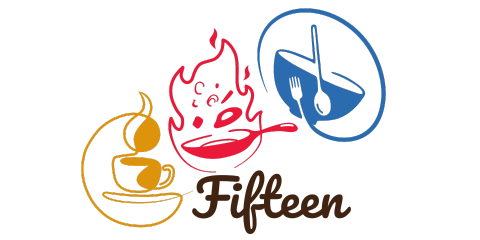

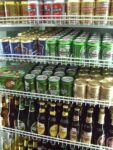

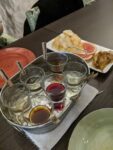
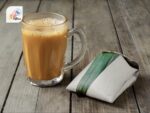
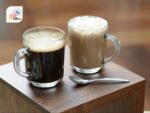

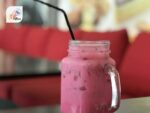
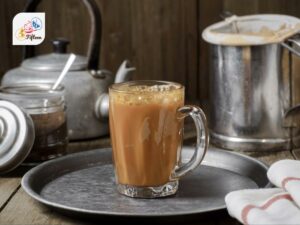
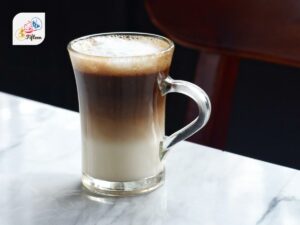
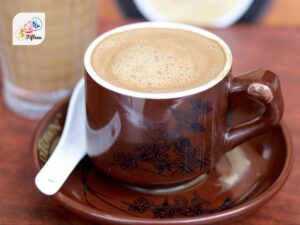
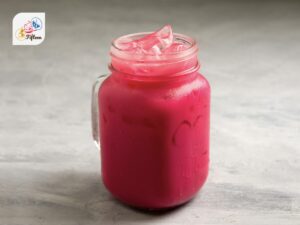
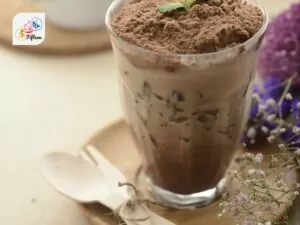
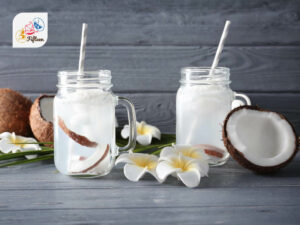
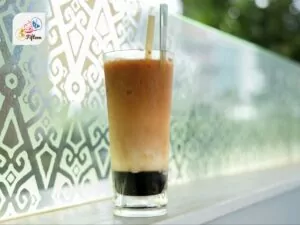
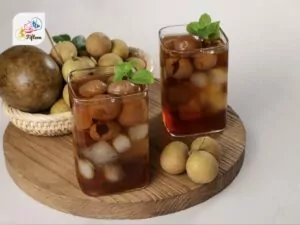
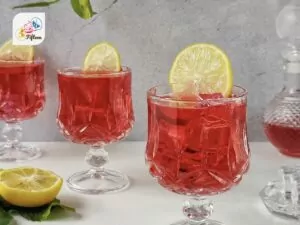
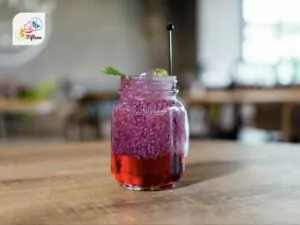
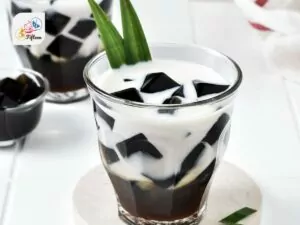
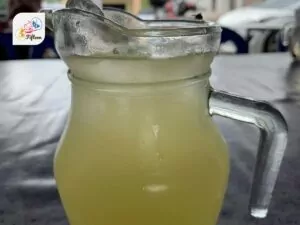
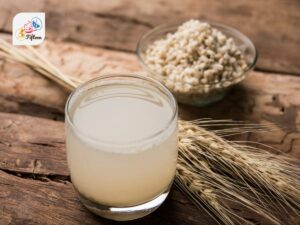
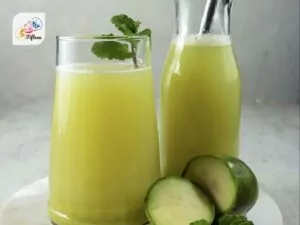
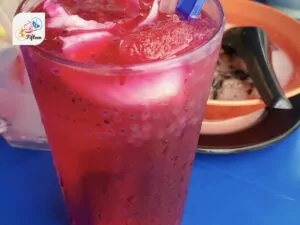
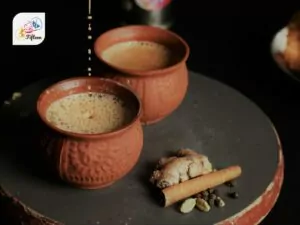
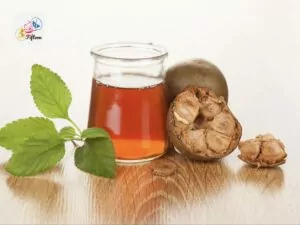
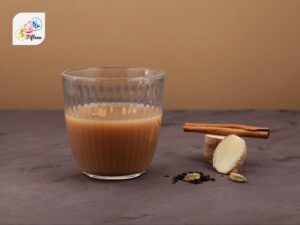
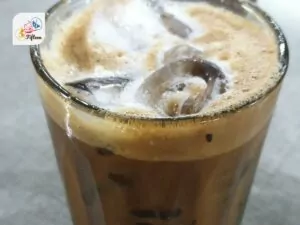
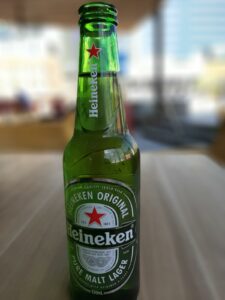
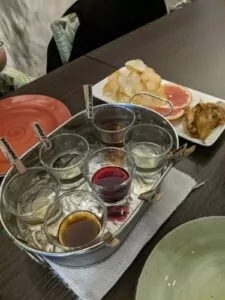
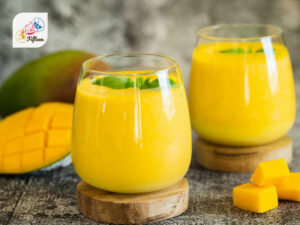
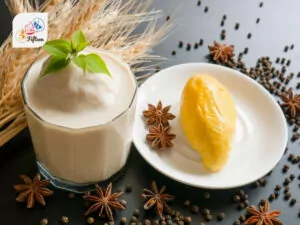
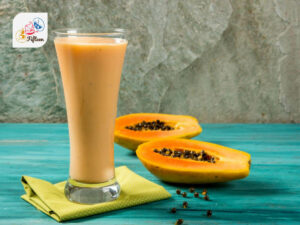
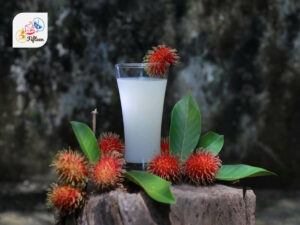
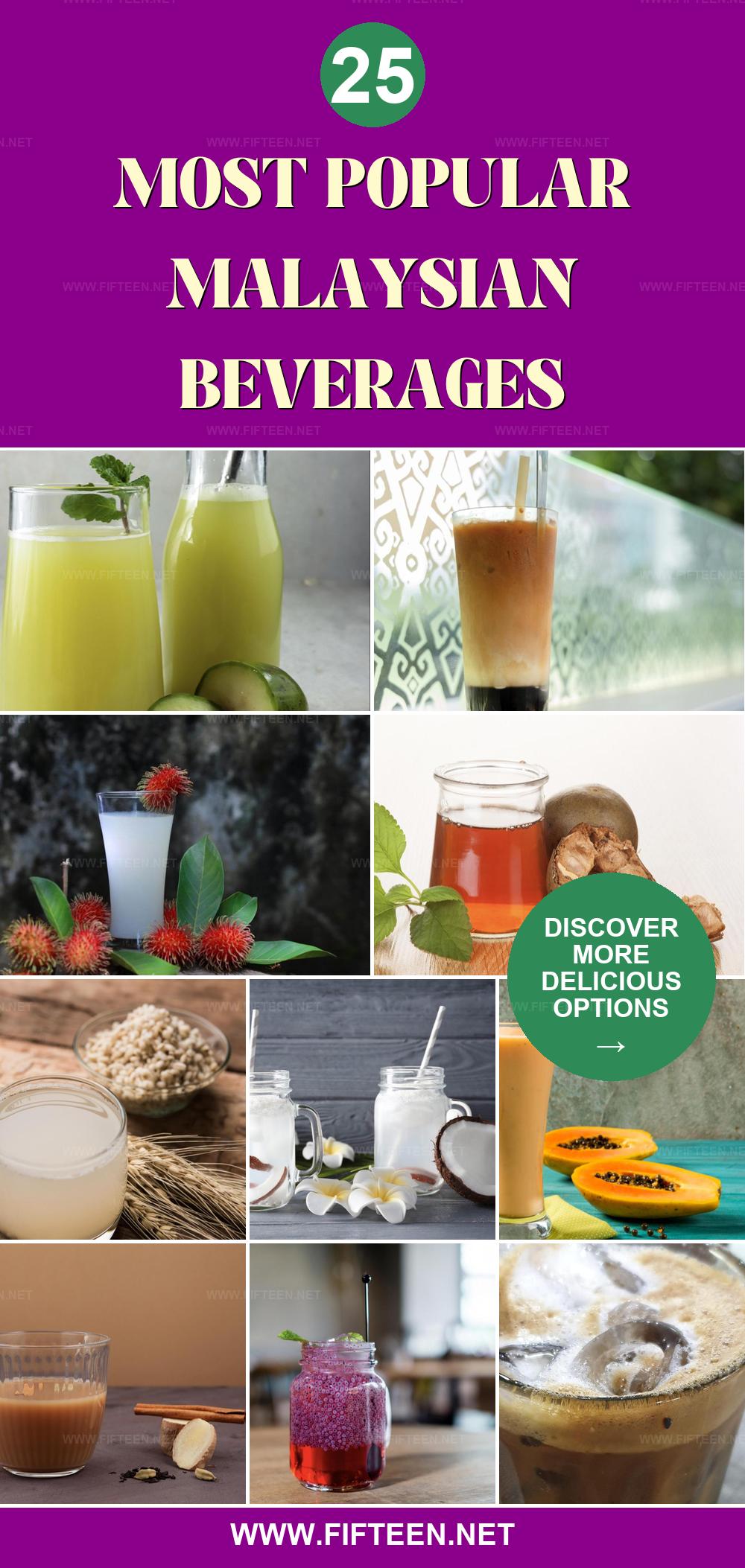
Jamie Scott
Editor in Chief, Senior Content Writer
Expertise
Home Cooking, Meal Planning, Recipe Development, Baking and Pastry, Food Editor, Cooking-video Maker, Western Food Evaluation Expert
Education
Le Cordon Bleu College of Culinary Arts
Local Community College, New York, NY
Jamie Scott is a skilled culinary expert and content creator specializing in Western cuisine. With over 15 years in the culinary field and formal training from Le Cordon Bleu, Paris, Jamie deeply understands how to blend nutrition with delicious flavors. His passion for cooking matches his commitment to making healthy eating accessible and enjoyable.
On Fifteen.net, Jamie brings a fresh perspective to classic dishes and beverages, offering readers insightful recipes, cooking tips, and a fresh view on meal planning that emphasizes taste, health, and simplicity.